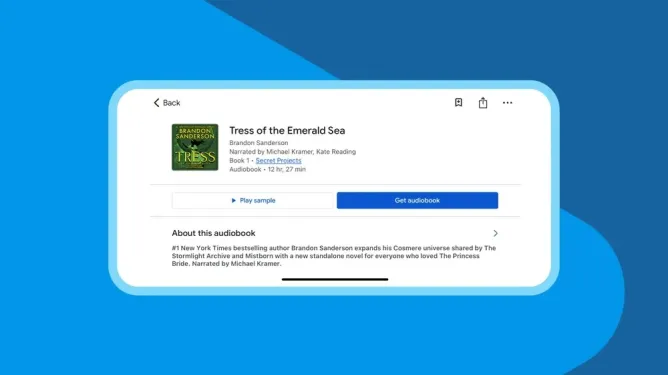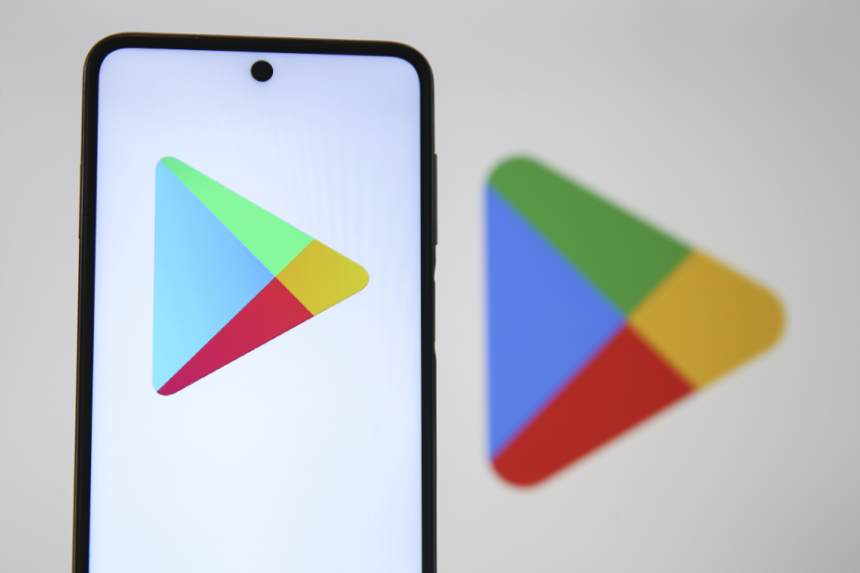In a significant shift in Apple’s app store policies, Google has gained permission to sell its e-books and audiobooks directly to customers through its iOS app, Google Play Books. This move allows Google to sidestep Apple’s hefty commission on in-app purchases, offering users a more seamless and cost-effective way to buy digital books.
A New Way to Purchase E-Books on iOS
For years, Apple’s App Store policies restricted developers from directing users to external websites for purchases, forcing them to use Apple’s in-app payment system, which typically incurs a 30% commission. While users could previously access books they had bought elsewhere, like through a web browser, direct purchasing within the iOS app was not an option.
Now, thanks to Apple’s External Link Account Entitlement—a policy introduced in 2022 following a settlement with the Japan Fair Trade Commission (JFTC)—Google Play Books users on iOS will see a new “Get book” button. When clicked, this button will redirect users to the Google Play website, where they can securely complete their e-book or audiobook purchase using their Google Account and saved payment details.
By processing these transactions outside Apple’s ecosystem, Google avoids the App Store’s commission, enabling more competitive pricing and potentially better deals for readers.

Seamless Integration Across Devices
Beyond just bypassing Apple’s fees, this change also enhances the overall user experience. Once purchased, books will immediately appear in the Google Play Books library across devices, including iOS, Android, and the web. Additionally, users can share their purchases with family members through Google Play’s Family Library, regardless of the platform they use for reading or listening.
How Google Navigated Apple’s Restrictions
The ability to link to an external purchasing site within an iOS app is not automatic. Developers must apply for Apple’s External Link Account Entitlement, which imposes strict guidelines on how external links are formatted, displayed, and referenced within the app. Apple also requires that users see a full-screen warning before proceeding to an external website, informing them that they are leaving Apple’s ecosystem and that future transactions will not be managed by Apple.
Netflix was one of the first companies to leverage this entitlement in 2022, allowing new users to subscribe via its website rather than through Apple’s in-app payment system. Google’s adoption of this strategy suggests a broader trend of major digital content providers seeking ways to reduce reliance on Apple’s payment infrastructure.
Why Now? Google’s Strategic Timing
While Apple introduced the External Link Account Entitlement in 2022, Google has only now chosen to implement it for Play Books purchases. The timing may be strategic, as it coincides with the resolution of the high-profile lawsuit between Epic Games and Apple.
The Epic Games v. Apple lawsuit challenged Apple’s App Store policies, particularly regarding in-app purchases and commissions. Although the courts ultimately ruled that Apple was not a monopolist, they did affirm that Apple must allow developers to provide links to their own websites for purchases. In January 2024, the U.S. Supreme Court declined to hear Apple’s appeal, solidifying the lower court’s ruling and ensuring that developers like Google could implement direct purchasing links without fear of repercussions.
The Future of Digital Content Sales on iOS
Google’s move to enable direct book purchases within its iOS app could pave the way for other developers to follow suit. With increasing regulatory scrutiny and ongoing legal battles challenging Apple’s control over in-app purchases, more companies may explore alternative payment methods to avoid the App Store’s commissions.
For consumers, this shift means greater flexibility, potentially lower prices, and a more direct relationship with digital content providers. As competition grows, Apple may eventually be forced to revise its App Store policies further to remain competitive in the evolving digital marketplace.
Final Thoughts
Google’s decision to enable direct purchases through Google Play Books on iOS is a win for both consumers and developers. By leveraging the External Link Account Entitlement, Google has successfully navigated Apple’s restrictions, providing users with a seamless and cost-effective way to buy e-books and audiobooks without unnecessary fees.
As more companies adopt similar strategies, the balance of power in the digital marketplace may continue to shift, leading to a more open and competitive ecosystem for mobile applications and digital content.
Stay tuned for further developments as the tech industry continues to challenge Apple’s stronghold over in-app transactions!










